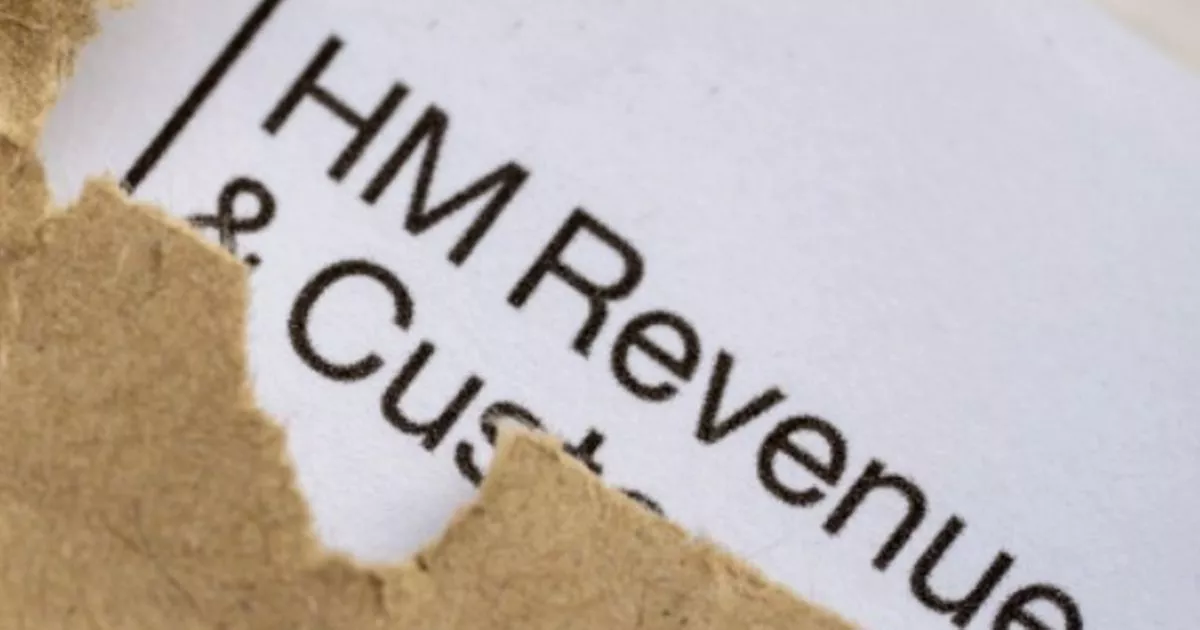Understanding HMRC's Nudge Letters For Online Sellers (eBay, Vinted, Depop)

Table of Contents
Selling online through platforms like eBay, Vinted, and Depop offers a fantastic opportunity to generate income. However, it's crucial to understand your tax obligations to Her Majesty's Revenue and Customs (HMRC). Increasingly, HMRC is using "nudge letters" to remind online sellers of their responsibilities. This comprehensive guide will demystify these letters, explain your obligations as an online seller, and help you avoid potential problems with HMRC.
What are HMRC Nudge Letters?
HMRC nudge letters are friendly reminders about potential tax liabilities arising from your online selling activities. They're not formal tax assessments or demands for immediate payment. Instead, they serve as a proactive measure, aiming to encourage compliance and prevent future penalties. Think of them as a helpful heads-up from HMRC, offering you the chance to review your tax affairs before any serious issues arise.
Purpose: The primary purpose of these letters is to prompt you to check your tax records and ensure you're correctly declaring your income from online sales. HMRC uses data from various sources, including sales platforms themselves, to identify potential discrepancies.
Triggers: Several scenarios might trigger an HMRC nudge letter, including:
- Discrepancies in declared income: If your declared income doesn't match the data HMRC holds, you're likely to receive a letter.
- High transaction volumes: A large number of sales transactions within a specific period might also lead to a nudge letter.
- Missing tax returns: If you haven't filed your Self Assessment tax return on time, this could trigger a nudge letter.
Key takeaways about HMRC nudge letters:
- They are not a formal tax assessment.
- They are an invitation to review your tax affairs.
- They offer an opportunity to rectify any issues before penalties are incurred.
Identifying a Genuine HMRC Nudge Letter
Receiving a letter from HMRC can be concerning, so it's crucial to verify its authenticity before taking any action. Scammers often use fake letters to attempt phishing or steal your personal information.
Authenticity: Genuine HMRC nudge letters will always include:
- Official HMRC branding and letterhead.
- A unique reference number.
- Clear and professional language.
- Contact details for verifying the letter's authenticity.
Phishing Scams: Be wary of emails or letters that:
- Demand immediate payment.
- Contain spelling or grammatical errors.
- Use threatening language.
- Ask for personal or financial information via email or untrusted links.
Verification: To verify the authenticity of an HMRC letter, you can:
- Check the HMRC website for their current letter designs and contact information.
- Call HMRC directly using the official phone number found on their website.
- Never click on links in suspicious emails or letters.
Key steps to identify a genuine HMRC nudge letter:
- Check for official HMRC letterhead and contact details.
- Verify the reference number on the HMRC website.
- Never click on links in suspicious emails.
Your Obligations as an Online Seller
As an online seller, you have certain tax obligations, regardless of whether you're selling on eBay, Vinted, Depop, or other platforms. Understanding these obligations is key to avoiding problems with HMRC.
Tax Thresholds: The UK has a personal allowance, which is the amount you can earn tax-free each year. For the 2023/24 tax year, this was £12,570. Any income above this threshold is subject to income tax. Your tax rate depends on your total income and falls into various tax bands.
Record Keeping: Maintaining accurate and detailed records is vital. This includes:
- All sales transactions (date, amount, buyer details).
- All expenses related to your online selling business (packaging, postage, website fees, etc.).
Self-Assessment: If your online selling income exceeds your personal allowance or you have other sources of income, you'll likely need to file a Self-Assessment tax return annually. This involves declaring all your income and allowable expenses to determine your tax liability.
Key responsibilities for online sellers:
- Keep detailed records of all sales and expenses.
- Report all income accurately on your tax return.
- Understand your personal allowance and tax bands.
Responding to an HMRC Nudge Letter
Receiving an HMRC nudge letter requires prompt action. Ignoring it can lead to more serious consequences.
Action Required: Once you've verified the letter's authenticity, carefully review your sales records and compare them to the information HMRC has. If there are discrepancies, you'll need to amend your tax return and pay any outstanding tax.
Contacting HMRC: If you have any questions or need clarification about the letter's contents, contact HMRC directly through their official channels. They are there to help, but proactive communication is essential.
Potential Penalties: Failure to respond to an HMRC nudge letter or comply with your tax obligations can result in penalties, interest charges, and potential legal action.
Key steps after receiving an HMRC nudge letter:
- Review your sales records and ensure accuracy.
- Contact HMRC if you have questions or need assistance.
- File any necessary amendments to your tax return promptly.
Conclusion
Understanding HMRC's nudge letters for online sellers is crucial for avoiding tax issues. These letters serve as a warning, giving you an opportunity to rectify any errors before penalties are incurred. Accurate record-keeping, timely tax returns, and proactive communication with HMRC are essential. Don't ignore those HMRC nudge letters – understand your obligations and avoid potential penalties. Get expert advice on managing your tax responsibilities for online selling on eBay, Vinted, and Depop today!

Featured Posts
-
 Going Solo A Guide To Safe And Rewarding Independent Travel
May 20, 2025
Going Solo A Guide To Safe And Rewarding Independent Travel
May 20, 2025 -
 Abidjan Accueille Le Premier Marche Africain Des Solutions Spatiales Mass
May 20, 2025
Abidjan Accueille Le Premier Marche Africain Des Solutions Spatiales Mass
May 20, 2025 -
 T Mobile To Pay 16 Million For Data Security Failures
May 20, 2025
T Mobile To Pay 16 Million For Data Security Failures
May 20, 2025 -
 Find The Perfect Scent Hugo Boss Perfume Sale On Amazon 2025
May 20, 2025
Find The Perfect Scent Hugo Boss Perfume Sale On Amazon 2025
May 20, 2025 -
 Aktrisa Dzhennifer Lourens Snova Stala Materyu
May 20, 2025
Aktrisa Dzhennifer Lourens Snova Stala Materyu
May 20, 2025
